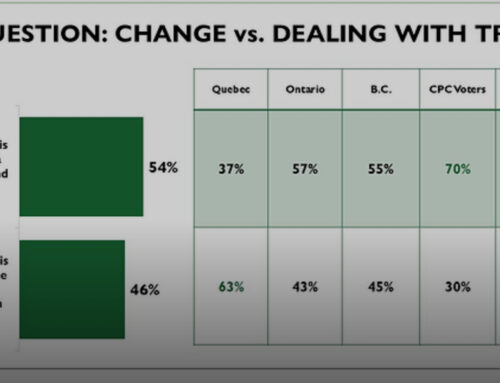Paving the road to a business-friendly environment with more than just good intentions
February 9, 2025
Shanghai’s eighth installment of its action plan to refine the city’s business environment has shifted the focus from policy intentions to tangible outcomes for investors and companies.
It was unveiled at the annual Business Environment Optimization Conference, traditionally held on the first working day after the Chinese New Year holiday.
The version 8.0 of the plan continues efforts initiated in 2018. Despite big progress, especially in policy development, challenges remain in implementation of policies and assessment of actual impact on the ground.
With Shanghai’s gross domestic product surpassing 5 trillion yuan (US$686.81 billion) in 2024, the city enters a new phase of growth, but global uncertainties continue to muddy the economic trajectory. To maintain investor confidence, Shanghai must offer more than just strategic direction; it needs to deliver a stable, transparent and predictable playing field for businesses.
The latest installment of the action plan, for the first time, highlights “enhancing the business experience” in its title. That signals a pivot to a more action-oriented approach.
It is aimed at addressing one of the most persistent issues surrounding Shanghai’s business environment – namely, the “temperature gap” between government policy intentions and the actual experiences of businesses.
Although the government has introduced numerous initiatives over the years, many businesses remain skeptical because the good intentions are sometimes difficult to navigate and have not always been effectively implemented.
Historically, policies have been designed from the top down, sometimes overlooking the day-to-day needs of businesses. As a result, companies often struggle to cope with complicated processes that hinder the benefits of these policies.
The 8.0 plan aims to bridge this gap by focusing not just on policy drafting but on how to make policies actually work on the ground.
A key feature of this plan is a more targeted and nuanced approach to policy delivery. Feedback from a municipal survey among businesses reveals that while policies are plentiful, they are often difficult to locate or too complex to utilize.
Take, for example, a policy requiring businesses to generate “positive social benefits” to qualify for certain preferential treatment. What exactly defines these “social benefits?” Is it the amount of tax paid? Is it a company’s contributions to intellectual property? Similarly, a policy that allows certain projects to bypass environmental assessments requires compliance with “regional ecological standards” that are not clearly defined.
The Shanghai government is already taking steps to address these concerns. Since 2024, Shanghai’s big data center has been leveraging data analytics to automatically notify businesses about their eligibility for relevant policies, eliminating the need for companies to search them out. This gives businesses a heads-up on potential benefits without undue delays.
Another recurring issue is the online application process, where businesses often face repeated rejections due to minor errors. The 8.0 plan tackles that by simplifying the process, reducing redundant information requirements and providing personalized online support to help businesses navigate the system smoothly.
Another particularly nettlesome challenge is overlapping administrative inspections, which can disrupt company daily operations and waste resources. To address this, Shanghai has recognized more than 2,000 companies as “authorized economic operators,” effectively reducing the number of administrative checks they have to undergo for the next three years provided they maintain “low-risk” profiles.
Remote inspections via video monitoring and smart alerts are also being trialled in certain sectors to minimize disruption.
These changes mark a positive step in streamlining government oversight. Moving forward, Shanghai plans to integrate credit and risk factors into criteria for regulatory inspections, ensuring minimal disruption for businesses with strong credit histories and low-risk profiles.
However, the most transformative aspect of the eighth action plan is a fundamental shift in government thinking.
It’s no longer about “what the government can do,” but about “what businesses need.” The future of Shanghai’s business environment depends on recognizing that businesses are the true engines of growth and innovation. This requires a fundamental shift in how the government engages with the business community.
For this transformation to succeed, government officials must evolve from being mere policy enforcers to being active, hands-on partners in business development. This requires stepping out of their comfort zones and engaging with businesses on a deeper level – getting to know the nuances of different industries, understanding the daily realities of running a company and showing empathy with business leaders. Such engagement is not just about solving issues; it’s about building trust and collaboration.
To make this vision a reality, a new system of incentives for government officials is essential.
First, officials at all levels should undergo continuous, high-level training tailored to the industries they regulate. Shanghai’s ambition to become a global center for innovation will require government officials to speak the language of cutting-edge industries – whether in technology, science or finance. This knowledge is essential for effective policy implementation and fostering trust with businesses.
Secondly, the hierarchy of internal communications should be abandoned for high-priority projects, allowing front-line officials to report directly to senior leadership and expedite resolution of critical issues. By shortening the feedback loop, Shanghai could accelerate business growth and enhance the city’s economic competitiveness.
Shanghai is at a crossroads in its journey to create the kind of business environment that will firmly set it on the world’s commercial stage. The 8.0 action plan signals a deeper, more collaborative relationship between government and business – a shift that promises to unlock new growth opportunities.
By adopting a more “user-centric” approach, by building empathy and by empowering officials with the knowledge and incentives to drive long-term progress, Shanghai can create a business ecosystem that is truly innovative, efficient and globally competitive.
Search
RECENT PRESS RELEASES
Related Post



